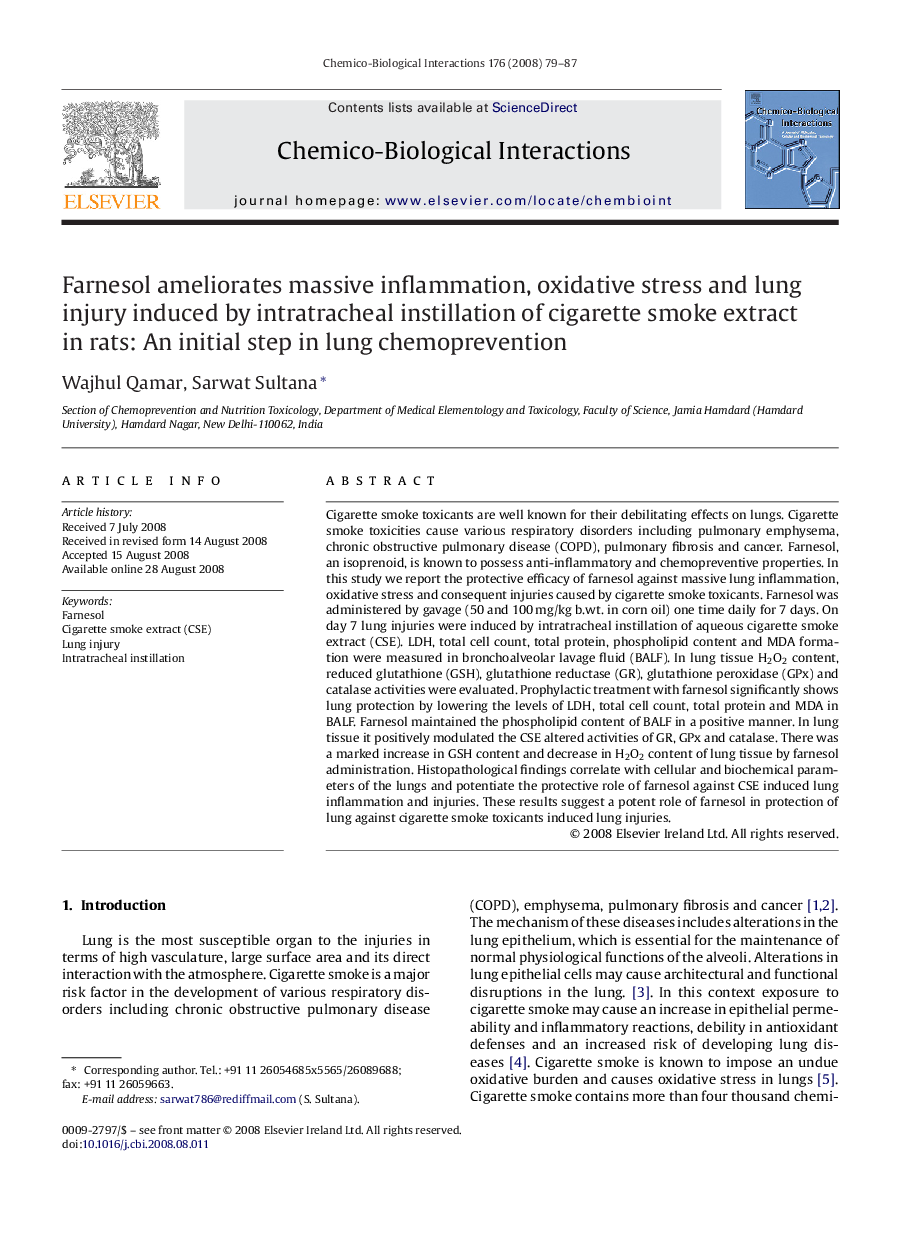| Article ID | Journal | Published Year | Pages | File Type |
|---|---|---|---|---|
| 2582412 | Chemico-Biological Interactions | 2008 | 9 Pages |
Cigarette smoke toxicants are well known for their debilitating effects on lungs. Cigarette smoke toxicities cause various respiratory disorders including pulmonary emphysema, chronic obstructive pulmonary disease (COPD), pulmonary fibrosis and cancer. Farnesol, an isoprenoid, is known to possess anti-inflammatory and chemopreventive properties. In this study we report the protective efficacy of farnesol against massive lung inflammation, oxidative stress and consequent injuries caused by cigarette smoke toxicants. Farnesol was administered by gavage (50 and 100 mg/kg b.wt. in corn oil) one time daily for 7 days. On day 7 lung injuries were induced by intratracheal instillation of aqueous cigarette smoke extract (CSE). LDH, total cell count, total protein, phospholipid content and MDA formation were measured in bronchoalveolar lavage fluid (BALF). In lung tissue H2O2 content, reduced glutathione (GSH), glutathione reductase (GR), glutathione peroxidase (GPx) and catalase activities were evaluated. Prophylactic treatment with farnesol significantly shows lung protection by lowering the levels of LDH, total cell count, total protein and MDA in BALF. Farnesol maintained the phospholipid content of BALF in a positive manner. In lung tissue it positively modulated the CSE altered activities of GR, GPx and catalase. There was a marked increase in GSH content and decrease in H2O2 content of lung tissue by farnesol administration. Histopathological findings correlate with cellular and biochemical parameters of the lungs and potentiate the protective role of farnesol against CSE induced lung inflammation and injuries. These results suggest a potent role of farnesol in protection of lung against cigarette smoke toxicants induced lung injuries.
